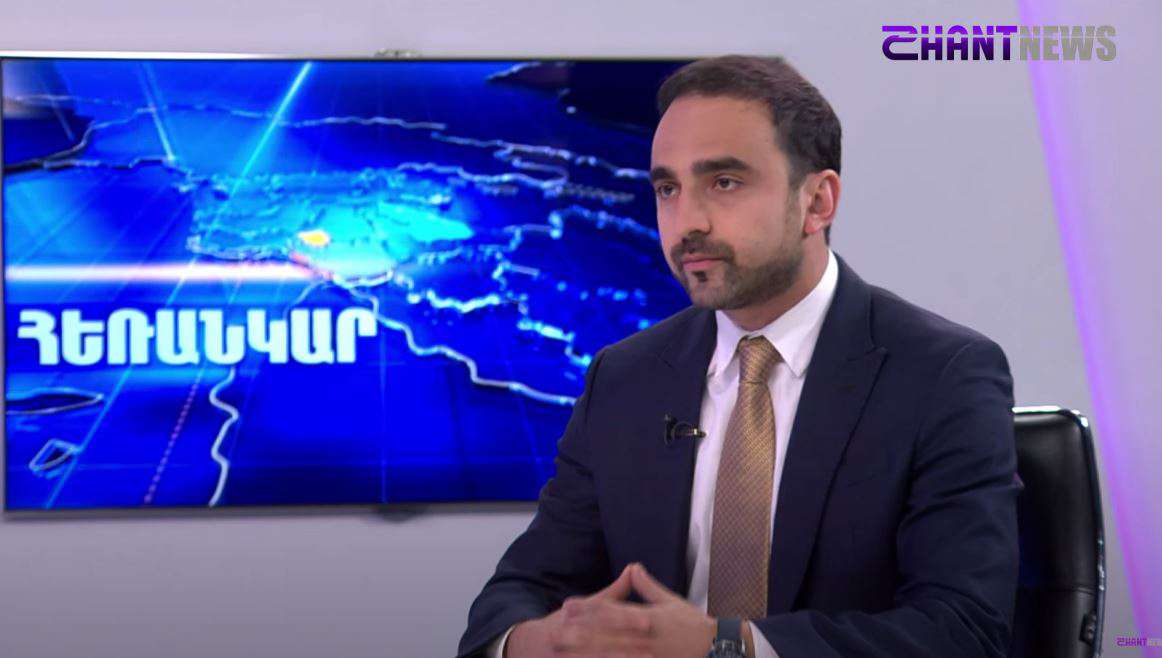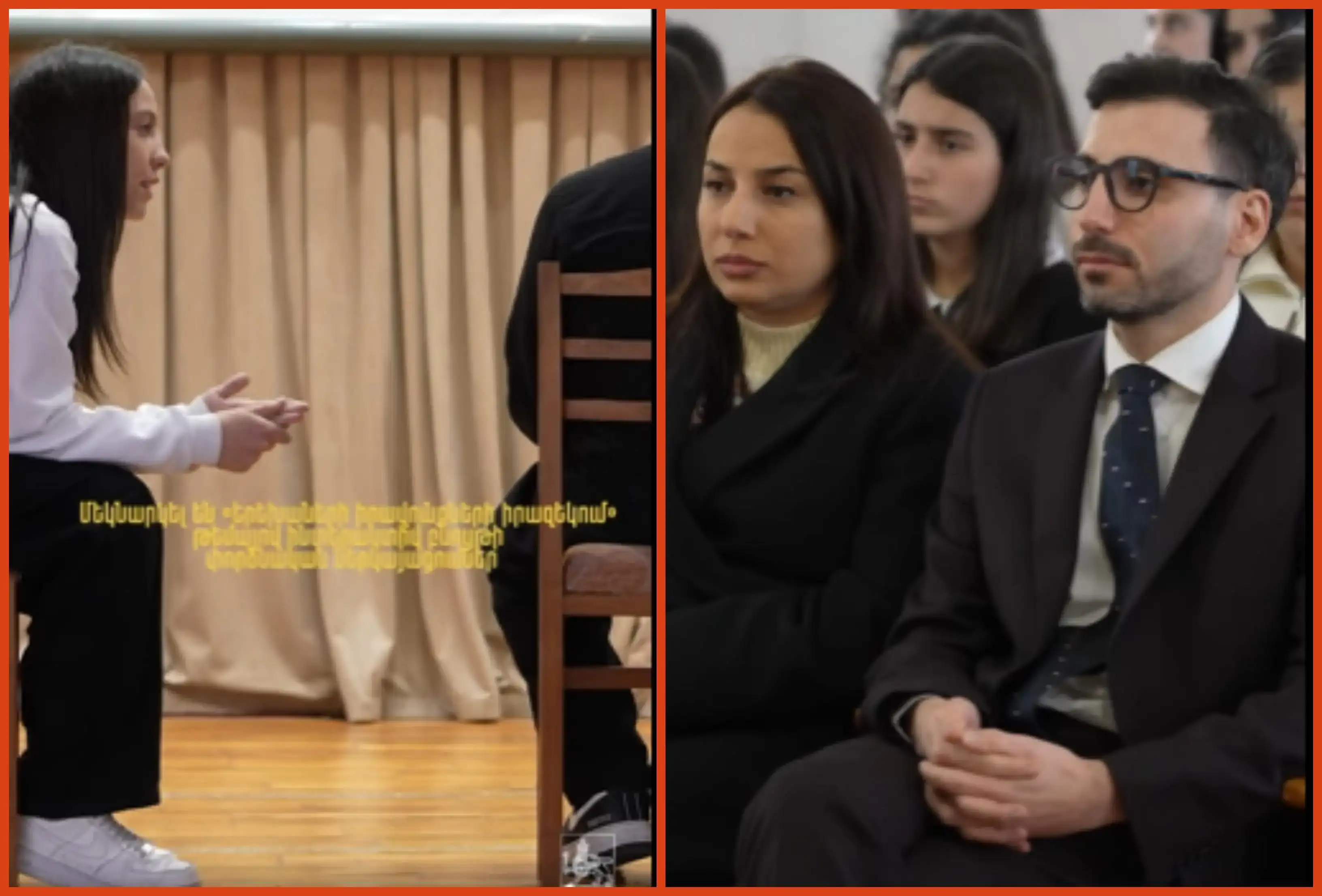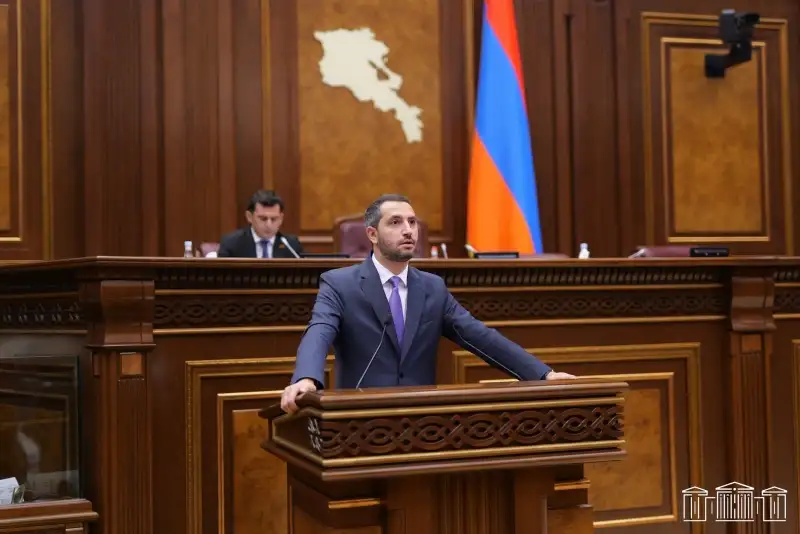On October 22, one month passed since Tigran Avinyan was elected as Yerevan's deputy mayor. Many problems face the capital and require a quick solution. What did the newly elected deputy mayor do in one month, and what was his main concern? Deputy Mayor Tigran Avinyan spoke about this at the "Perspective" booth.
Avinyan noted that he managed to visit three administrative districts this month. He got acquainted with the problems, the current situation, and the problems raised by the majority.
"I have been to Ajapnyak, Kanaker-Zeytun, and Shengavit; of course, each has its specific problems, but in all places, there are main problems that are always raised: the problem of transportation, green areas, improvement of yards, etc. There were no systemic solutions in many places, and these problems have continuously accumulated," said the deputy mayor.
Although he has discussed the transport reform with the municipality since 2019, he still concluded that a complex and quality solution approach was more correct.
"At that time, the municipality offered phased, partial solutions, which led to the situation: we buy buses in phases, don't have a unified system of tickets, etc. This has become a problem in almost all administrative regions, especially suburbs. By the end of the year, the number of new buses that will enter new routes is expected, and the situation will soften to some extent. By the end of the first quarter of next year, MAN-type buses are expected, where we have problems again and need to solve them as soon as possible. However, we need a complex solution in the field of transport. The expectation is that the problem volume will decrease significantly during the next year, and the work in that direction continues," Avinyan said.
To the question of what is the wording "city for people" and whether it is not the case now, Tigran Avinyan said, "No, it is not the case now. For people, a city means not having a problem with transportation and having suitable places for vacations; it means a city for people with wheelchairs and strollers. Now let's go around Yerevan and understand, is this city for people? Yerevan residents should feel a normal connection with the city and see that it serves them."
Avinyan emphasized that there are many problems, and they require systemic solutions. He noted that this year in the Shengavit administrative district, 33-yard areas were freed from fenced areas, which will continue in all organizational sections. According to him, the goals that the Yerevan Municipality should have as a structure should be derived from the problems in the given administrative region.
"And if you don't get to know those problems on the spot yourself, you don't get that deep, sensory level information yourself, sitting in the cabinet, you can't perceive the same and give competent and correct solutions," Avinyan said.
To why these problems were not solved during the years when he held the post of deputy prime minister, Avinyan answered, "At that time, there was a mayor, there were deputy mayors, and I think that should have been their job. As the deputy prime minister, I dealt with various issues: military industry, economy, etc. The nature of the work was different. In many cases, the work of me and my office was not even visible, but since 2018, we have played a role in almost all the resulting reforms."
Returning to the problems of Yerevan, the deputy mayor emphasized that the municipality is changing 500 elevators, which is a record number. This process will continue until all the old elevators are replaced, but this is not the municipality's responsibility.
"What happens inside the building is within the jurisdiction of condominiums. We all know that condominiums do not have that potential. We, so to speak, "hold our left ear with our right hand," but it would be right to address the problem of condominiums, to solve that problem so that the condominiums do what they should do within the scope of their powers. The same is the case with emergency buildings," explained Avinyan.
Avinyan stressed that he would visit all administrative districts, depending, of course, on weather conditions. "We conduct a visit for three weeks, every week in one administrative district, and we summarize for one week. This is the summary week. I deal with the problems raised that are difficult to solve," said Tigran Avinyan.




















